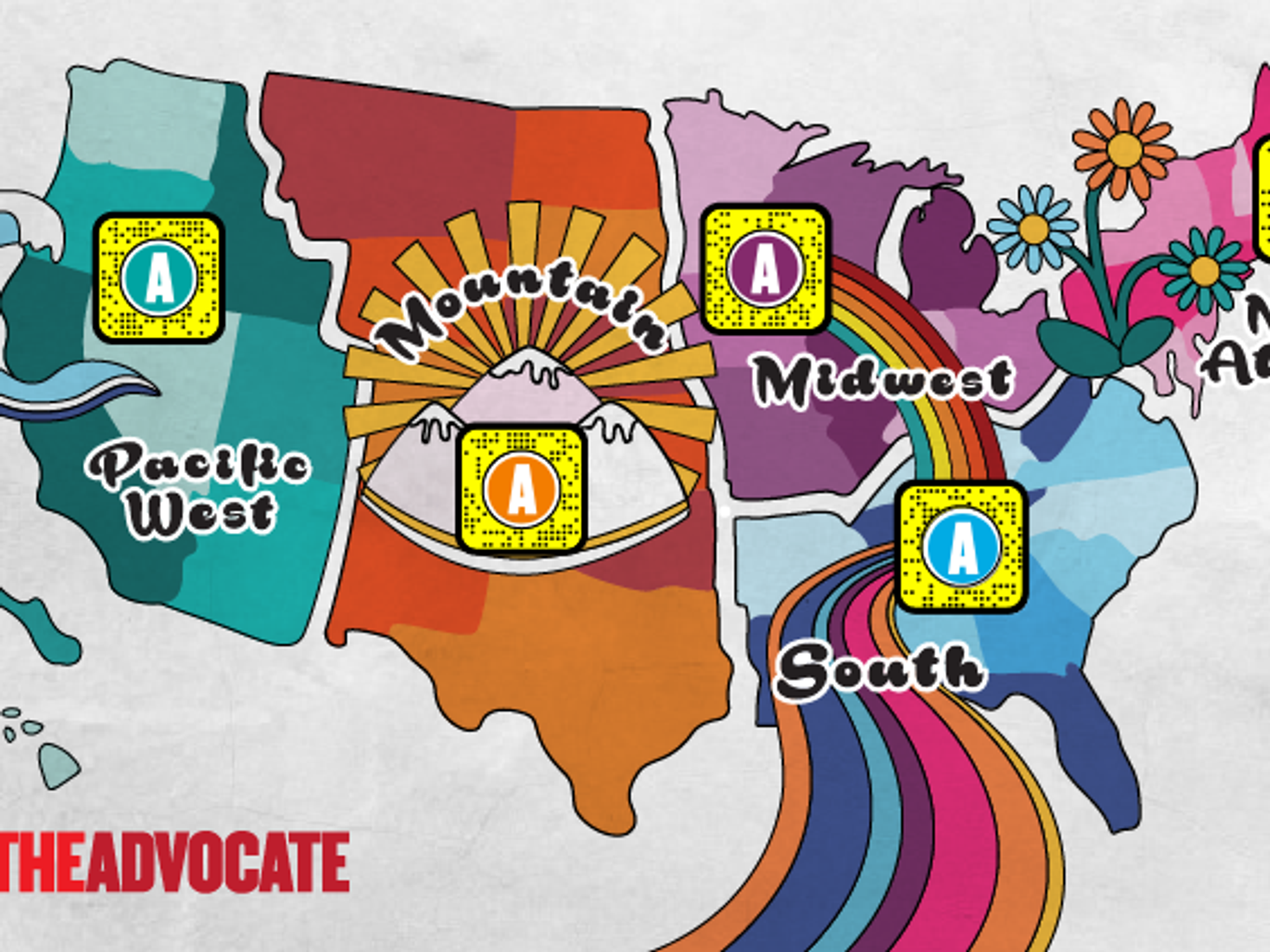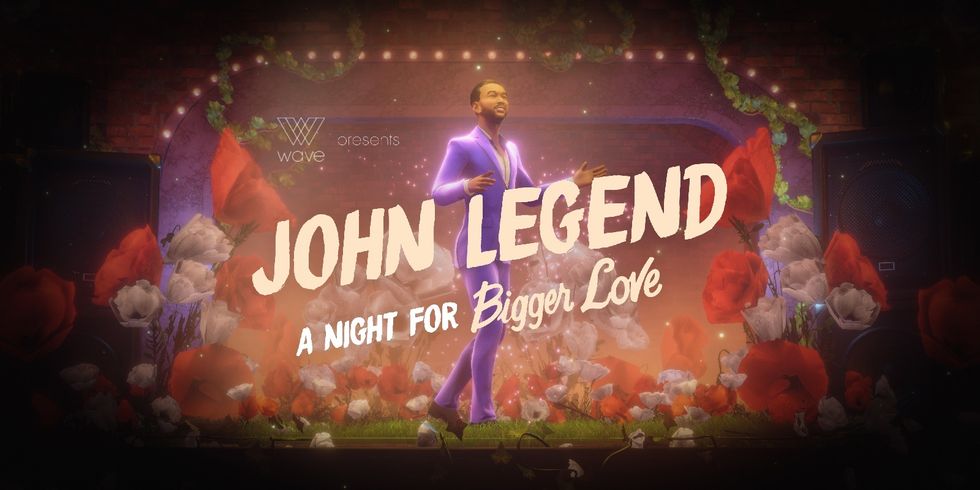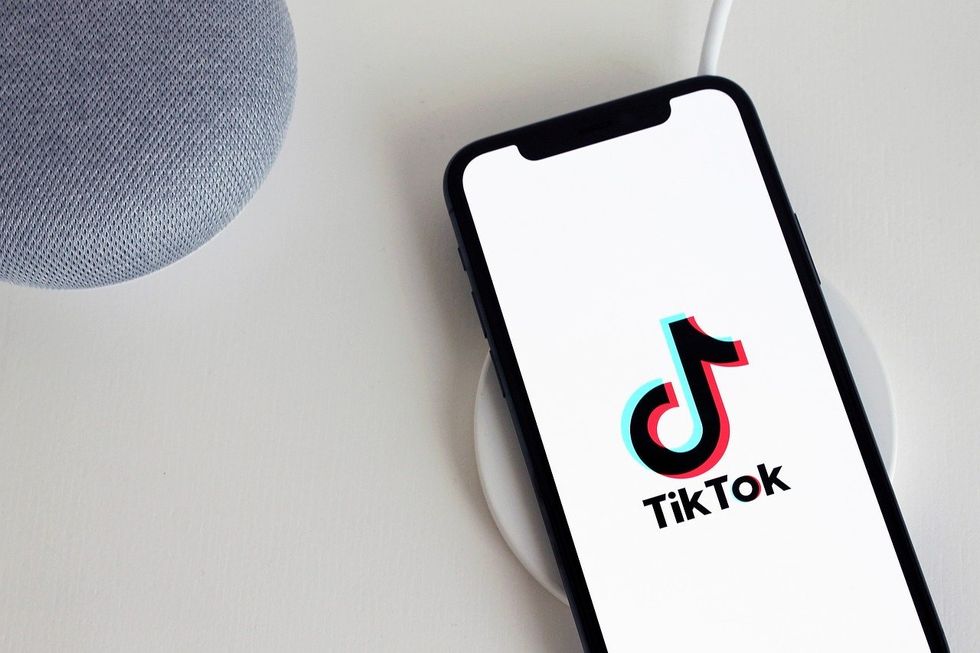L.A. Tech Updates: Quibi's Woes, TikTok's Riches, Snap Rolls Out Pride Lenses
Sam primarily covers entertainment and media for dot.LA. Previously he was Marjorie Deane Fellow at The Economist, where he wrote for the business and finance sections of the print edition. He has also worked at the XPRIZE Foundation, U.S. Government Accountability Office, KCRW, and MLB Advanced Media (now Disney Streaming Services). He holds an MBA from UCLA Anderson, an MPP from UCLA Luskin and a BA in History from University of Michigan. Email him at samblake@dot.LA and find him on Twitter @hisamblake

Here are the latest updates on news affecting Los Angeles' startup and tech communities. Sign up for our newsletter and follow dot.LA on Twitter for more.
Today:
- New Streaming Data Underline Quibi's Struggles
- John Legend Takes to Wave's Virtual Stage
- TIkTok Reportedly Rakes in $200M
- Snap Rolls Out Pride Lenses For U.S. Regions
New Streaming Data Underline Quibi's Struggles

Things started so rosily for Quibi, with a fat $1.75 billion fundraise, loads of content deals with A-listers, and a sold-out advertising slate. But lately it's been nothing but bad news.
Recent reports have depicted all kinds of troubles: low demand, executive departures, unhappy advertisers, an ongoing intellectual property lawsuit, and a potential rift between its two chiefs, Jeffrey Katzenberg and Meg Whitman. All this on top of a global pandemic that has done no favors to the company's initial value proposition of serving the "on-the-go" moments of consumers' lives.
Quibi is apparently trying to respond. Variety reported on Wednesday that the L.A.-based mobile-first, short-form video platform has been negotiating with Amazon and Roku to accelerate its availability onto connected devices. Company executives have also reportedly taken pay cuts.
Data provided to dot.LA by JustWatch, an analytics firm with offices in L.A. and Berlin, show that in May, Quibi and its content library captured just 0.5% of the U.S. streaming audience's interest. Netflix led the way at 31%, followed by Amazon Prime Video at 18%, Hulu at 11%, and Disney+ at 8%.
Industry observers have frequently cited Quibi's lack of a hit show, combined with its nonexistent back catalog of familiar favorites, as a key reason why it has struggled since its April launch.
JustWatch's data suggest that Reno 911!, which debuted on Quibi in early May, was far and away the most popular show on the app last month. The firm estimates that the rebooted police satire was four times more popular than the runner-up, The Stranger, and 12 times more popular than Quibi's third-ranked title, Most Dangerous Game.
Quibi did not immediately respond to a request for comment.
John Legend Takes to Wave's Virtual Stage

Wave, an entertainment technology company that turns performers into digital avatars and puts them on virtual stages where they can entertain and interact with fans, announced that John Legend will perform on the platform on Thursday, June 25th at 3:00pm PT.
Legend had previously been slated to participate in the L.A.-based entertainment firm's "One Wave" virtual concert series, but no date had been announced before Wednesday.
The performance, available via YouTube and Twitter, will feature new songs from the EGOT winner's upcoming album, "Bigger Love." Leveraging the Wave platform's interactivity, attendees will be able to send "visual gifts" throughout the performance, with 100% of the proceeds going to Legend's FREEAMERICA criminal justice reform campaign.
Wave is partnering with PEOPLE for the Legend performance. Sponsors also include Yamaha and Valence, a "new social network addressing diversity by connecting Black talent with economic opportunity." The Ad Council will also be providing public service announcements and resources during the show for fighting racial injustice.
Fresh off a $30 million Series B fundraise, Wave has hosted over 50 events, for up to 400,000 people at a time.
TIkTok Reportedly Raked in $200M

The Information reported Wednesday that TikTok earned between $200 million and $300 million in revenue worldwide in 2019. The news site also said the Culver City-based social media phenomenon's 2020 revenue goals are $500 million in the U.S. alone. These figures follow a separate report from Bloomberg last month that TikTok's parent company ByteDance raked in $17 billion in 2019, and pocketed over $3 billion in profit.
A TikTok company spokesperson would neither confirm nor deny the figures, saying "we don't publicly share company data or revenue metrics."
In response to The Information's report that TikTok is considering hiring an American executive to oversee its sales team, the spokesperson said, "We are always looking at new opportunities to scale and attract great talent for our teams."
TikTok, which is now under the leadership of former Disney streaming executive Kevin Mayer, will be participating later this month in the NewFronts, the digital media world's jamboree of presentations to woo advertising buyers, which will be virtual this year.
Snap Rolls Out Pride Lenses For U.S. Regions

Courtesy of Snap
June is Pride Month, and instead of the annual in-person festivities, L.A. Pride has been celebrating its 50th anniversary with a series of virtual events. Now, Snap is adding augmented reality (AR) to the mix. The Santa Monica company released five new AR lenses on Wednesday in partnership with L.A.'s Pride Media. The "community of storytellers, innovators and influencers" reaches over 6 million monthly unique users, which Pride says surpasses any other LGBT media brand.
The new lenses, which is Snap-speak for the digital overlays that transform a camera image, "spotlight diverse, queer-identifying changemakers advancing equity for all people in every U.S. state," according to a company statement. The release is paired with the annual "Champions of Pride" issue from The Advocate, a Pride Media subsidiary publication.
A Snap spokesperson describes the five new lenses as "art gallery-style spaces" that help Snap's young-leaning users learn about LGBTQ+ and BIPOC advocates. These include "Mighty" Rebekah, a 13-year-old who successfully lobbied for an LGBTQ-inclusive school curriculum in her home state of New Jersey, and Brandon Wolf, the first survivor of the 2016 Pulse nightclub shooting in Orlando to testify before Congress.
Snap tapped five designers from its official lens creator cohort to represent five U.S. regions. Each creator has regional ties and either identifies as LGBTQ+ or an ally, the company says.
Brielle Garcia, designer of the Pacific West lens, says, "I wanted to work on a Pride lens that was not just a celebration of the past, but a celebration of our future. I hope these Lenses can be an encouragement to everyone in the LGBT community. Encouragement that people as unique as you can have success in business, politics, art, or anything you can dream of. This message is important to me because this kind of success has not always been available to us. So many amazing people have come before us to pave the way and this is a celebration of their success and a guide to what you can achieve."
Joshua Keeney, repping the Northeast, says, "The takeaways that I want people to have with this Lens is that there is incredible diversity within the LGBTQ community, that everyone can be a champion in their own way, and can bring changes to their own communities."
- L.A. Tech Updates: 'Smart' Glass Gets a Boost - dot.LA ›
- Los Angeles' Tech and Startup Scene is Growing. - dot.LA ›
- Snap Stops Promoting Trump In its Discover Platform - dot.LA ›
- Snap Partners with Headspace For Meditation Tools - dot.LA ›
- Snapchat Rolls Out Pride Lenses For Every U.S. Region - dot.LA ›
- TikTok Threatens Legal Action Over Trumps Executive Order - dot.LA ›
- The TikTok Ban's Conundrum for Artists and Apps - dot.LA ›
- Snapchat's 'Spotlight' Lures Short-Form Video Creators - dot.LA ›
- TikTok Is Partnering with Ad Behemoth WPP to Offer Creators Potential Advertisers - dot.LA ›
- Snap Is Bringing AR Experiences To Local Landmarks - dot.LA ›
Sam primarily covers entertainment and media for dot.LA. Previously he was Marjorie Deane Fellow at The Economist, where he wrote for the business and finance sections of the print edition. He has also worked at the XPRIZE Foundation, U.S. Government Accountability Office, KCRW, and MLB Advanced Media (now Disney Streaming Services). He holds an MBA from UCLA Anderson, an MPP from UCLA Luskin and a BA in History from University of Michigan. Email him at samblake@dot.LA and find him on Twitter @hisamblake




 Image Source: JetZero
Image Source: JetZero